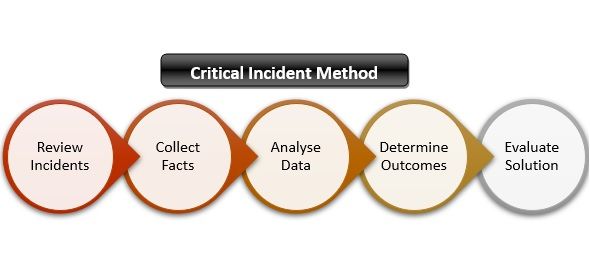Creating a customer-centric culture is essential for businesses aiming to thrive in a market where customer expectations are constantly evolving. A customer-centric culture ensures that every aspect of your organization—from
Read More
What is Supplemental Pay? Definition & Types
 Neha Malkani
Neha Malkani- February 26, 2024

Supplemental pay is a crucial component of compensation structures, providing additional financial benefits to employees beyond their base salary. Understanding its definition and significance is essential for both employers and employees alike. Let’s delve into the fundamentals of supplemental pay:
Supplemental Pay Definition – Supplemental pay refers to extra compensation provided to employees beyond their regular wages or salaries. This additional income can take various forms, including bonuses, commissions, overtime pay, shift differentials, and incentive payments. Supplemental pay is often awarded for exceptional performance, additional work hours, or specific job-related duties and responsibilities.
Supplemental pay plays a vital role in enhancing employee motivation, engagement, and satisfaction. By offering financial incentives for exemplary performance or increased productivity, organizations can encourage employees to go above and beyond their regular duties. Additionally, supplemental pay can help attract and retain top talent, as it demonstrates a commitment to rewarding employees for their hard work and dedication. From an organizational perspective, incorporating supplemental pay into compensation and benefits structures allows for greater flexibility in rewarding employees based on performance, market conditions, and business needs. Overall, supplemental pay serves as a valuable tool for incentivizing performance, recognizing achievements, and fostering a positive and productive work environment.
Understanding Supplemental Pay
Supplemental pay is a critical aspect of compensation packages, providing additional financial rewards to employees beyond their base salary. Here’s a deeper look into what supplemental pay entails:
Explanation of Supplemental Pay:
Supplemental pay refers to extra compensation given to employees on top of their regular wages or salaries. This additional income can take various forms, such as bonuses, commissions, overtime pay, shift differentials, or incentive payments. Supplemental pay is often awarded to employees for specific reasons, such as outstanding performance, working extra hours, completing special projects, or fulfilling specific job requirements. Unlike base pay, which is a fixed amount agreed upon in the employment contract, supplemental pay is typically variable and contingent upon certain conditions or achievements.
Difference between Base pay/Bonuses and Supplemental Pay
- Base Pay: Base pay, also known as base salary or regular wages, is the fixed amount of compensation that employees receive for their standard work hours or responsibilities. It forms the foundation of an employee’s total compensation package and is usually determined based on factors such as job role, experience, education, and market rates.
- Bonuses: Bonuses are one-time payments or rewards given to employees for achieving specific goals, milestones, or performance targets. Unlike supplemental pay, which may be recurring or ongoing, bonuses are typically discretionary and awarded periodically, such as annually or quarterly. Bonuses can take various forms, including performance bonuses, signing bonuses, retention bonuses, or profit-sharing bonuses.
While base pay represents the standard compensation for employees’ regular work, and bonuses are occasional rewards for exceptional performance or achievements, supplemental pay provides additional income beyond the base salary and may be contingent upon specific conditions or circumstances. Understanding the distinctions between these forms of compensation is essential for employers and employees alike in designing fair and competitive compensation structures.
What are the Types of Supplemental Pay?
Supplemental pay serves as a vital component of compensation packages, offering additional financial rewards to employees beyond their base salary. Here’s a closer look at some common types of supplemental pay:
- Overtime Pay:
Overtime pay is provided to employees who work beyond their standard work hours, typically exceeding 40 hours per week. In the United States, federal law mandates that eligible employees receive overtime pay at a rate of one-and-a-half times their regular hourly wage for each hour worked beyond 40 hours in a workweek. Many organizations also have their own policies regarding overtime pay. - Shift Differentials:
Shift differentials are additional payments given to employees who work shifts outside of regular daytime hours, such as evenings, nights, weekends, or holidays. These shifts may be less desirable or may require employees to adjust their lifestyles, so shift differentials compensate for the inconvenience and the impact on work-life balance. - Bonuses:
Bonuses are discretionary payments made to employees as a reward for achieving specific goals, milestones, or performance targets. They can be one-time payments or recurring incentives and are often used to recognize exceptional performance, incentivize productivity, or promote employee retention. Bonuses can take various forms, including performance-based bonuses, signing bonuses, referral bonuses, or profit-sharing bonuses. - Commissions:
Commissions are variable payments awarded to employees based on the sales or revenue they generate for the organization. Common in sales roles, commissions incentivize employees to maximize their sales efforts and contribute directly to the company’s bottom line. Commission structures vary widely across industries and organizations, with some offering flat commission rates and others using tiered or graduated structures. - Hazard Pay:
Hazard pay compensates employees for working in dangerous or high-risk environments where they may be exposed to health or safety hazards. Hazardous conditions could include exposure to toxic chemicals, extreme temperatures, or physical dangers. Hazard pay acknowledges the additional risks associated with these roles and serves as compensation for employees facing such challenges. - Severance Pay:
Severance pay is provided to employees who are terminated from their employment due to reasons such as layoffs, restructuring, or job elimination. It serves as financial assistance during the transition period between jobs, helping employees cover living expenses while they search for new employment. Severance packages may include a lump sum payment, continued salary and benefits for a specified duration, or outplacement services to assist with job search efforts. Job rotation within an organization can also offer employees new opportunities for growth and skill development, reducing the need for severance pay by fostering a culture of internal mobility and retention. - Call-Back Pay:
Call-back pay compensates employees who are called back to work outside of their regular scheduled hours, often in response to emergencies, unexpected workload surges, or after-hours service calls. Call-back pay acknowledges the inconvenience of being called back to work and provides additional compensation to compensate for the disruption to employees’ personal time. - Premium Pay:
Premium pay refers to higher compensation rates provided to employees for performing specific tasks or duties that are deemed to be of higher value or requiring specialized skills. This may include certifications, licensure, or qualifications that warrant higher pay rates, such as premium pay for bilingual skills, technical expertise, or hazardous duty assignments. Premium pay recognizes the enhanced value that employees bring to the organization and incentivizes the development of specialized skills or expertise.
By offering these types of supplemental pay, organizations can incentivize performance, reward employees for their contributions, and ensure fair compensation for additional work, specialized skills, or challenging work conditions.
How Supplemental Pay Works?
Supplemental pay serves as an essential component of compensation packages, providing additional financial rewards to employees for various reasons beyond their regular wages or salaries. Understanding how supplemental pay works involves familiarity with eligibility criteria, calculation methods, and disbursement processes:
Eligibility Criteria:
- Performance: Supplemental pay may be tied to employee performance, with high performers often receiving bonuses, commissions, or incentive payments as a reward for exceeding expectations or achieving specific goals.
- Position or Role: Some types of supplemental pay, such as shift differentials or hazard pay, may be determined based on the nature of the employee’s position or job role. Employees working in certain roles, such as those involving night shifts or hazardous conditions, may be eligible for additional compensation.
- Company Policy: Eligibility for supplemental pay may also be outlined in company policies or employment contracts. Organizations may have specific criteria or guidelines governing the distribution of bonuses, commissions, or other forms of supplemental compensation.
Calculation Methods:
- Fixed Amounts: Some types of supplemental pay, such as bonuses or severance pay, may be predetermined as fixed amounts. For example, a performance bonus may be calculated as a percentage of the employee’s base salary or a flat dollar amount based on predefined criteria.
- Variable Rates: Other forms of supplemental pay, such as commissions or overtime pay, may be calculated based on variable rates. Commissions, for instance, may be calculated as a percentage of sales revenue generated by the employee, while overtime pay is typically calculated at one-and-a-half times the employee’s regular hourly wage for each hour worked beyond 40 hours in a workweek.
- Special Considerations: Hazard pay, shift differentials, or premium pay may involve special considerations or calculations based on specific factors such as the level of risk involved, the timing of work performed, or the employee’s qualifications and certifications.
Disbursement Processes:
- Timing: The timing of supplemental pay disbursement varies depending on the type of compensation and organizational policies. Bonuses may be distributed annually, quarterly, or on an ad hoc basis, while commissions may be paid out monthly, quarterly, or upon completion of sales transactions.
- Payment Methods: Supplemental pay may be disbursed through various payment methods, including direct deposit, physical checks, or electronic transfers. Employees may have the option to specify their preferred payment method based on convenience and accessibility.
- Documentation and Recordkeeping: Employers typically maintain detailed records of supplemental pay disbursements for accounting, tax, and compliance purposes. Documentation may include payment amounts, dates, employee signatures or acknowledgments, and any supporting documentation related to the calculation or justification of supplemental pay.
By understanding the eligibility criteria, calculation methods, and disbursement processes associated with supplemental pay, employers and employees can ensure transparency, fairness, and compliance in the administration of additional compensation.
What are the Benefits of Supplemental Pay?
Supplemental pay offers numerous advantages for both employers and employees, serving as a valuable tool in enhancing compensation packages and driving organizational success. Here are the key benefits of supplemental pay:
1. Attracting and Retaining Talent:
Offering supplemental pay, such as bonuses, commissions, or shift differentials, can help organizations attract top talent and retain valuable employees. Competitive compensation packages that include additional financial rewards make companies more appealing to prospective candidates and increase employee loyalty and commitment over time.
2. Motivating Employees:
Supplemental pay serves as a powerful motivator for employees, encouraging them to strive for excellence and exceed performance expectations. Incentive-based compensation structures, such as performance bonuses or commissions, incentivize employees to go above and beyond their regular duties, driving productivity, innovation, and overall organizational success.
3. Recognizing Exceptional Performance:
Supplemental pay provides a tangible means of recognizing and rewarding exceptional performance. Bonuses, merit-based pay increases, or profit-sharing incentives acknowledge employees’ hard work, dedication, and contributions to the organization’s goals and objectives. This fosters a culture of appreciation, empowerment, and mutual respect within the workplace, while also serving as valuable performance feedback.
4. Addressing Specific Work Conditions or Requirements:
Certain types of supplemental pay, such as hazard pay, shift differentials, or premium pay for specialized skills, address specific work conditions or requirements. Hazard pay compensates employees for working in dangerous or high-risk environments, while shift differentials acknowledge the inconvenience of working nonstandard hours. Premium pay rewards employees for acquiring and utilizing valuable skills or certifications that are essential to their roles.
5. Enhancing Employee Satisfaction and Engagement:
Offering supplemental pay demonstrates an organization’s commitment to valuing and investing in its employees’ wellness and success. Employees who feel fairly compensated and recognized for their contributions are more likely to be satisfied with their jobs, engaged in their work, and committed to achieving the organization’s goals. This leads to higher levels of employee morale, retention, and overall job satisfaction.
Supplemental pay provides numerous benefits for organizations and employees alike, including attracting and retaining talent, motivating performance, recognizing achievements, addressing specific work conditions, and enhancing overall employee satisfaction and engagement. By incorporating supplemental pay into compensation packages, organizations can create a supportive and rewarding work environment that fosters employee growth, success, and long-term loyalty.
Challenges and Considerations
Implementing supplemental pay programs comes with various challenges and considerations that employers must address to ensure fairness, compliance, and cost-effectiveness. Here are the key challenges and considerations associated with supplemental pay:
1. Cost Implications for Employers:
Offering supplemental pay can significantly impact an organization’s budget and financial resources. Bonuses, commissions, and other forms of additional compensation represent additional expenses for employers, which must be carefully budgeted and managed to maintain profitability and financial stability. Employers must weigh the potential benefits of supplemental pay against the associated costs to ensure they are making strategic investment decisions.
2. Equity and Fairness Concerns:
Ensuring equity and fairness in the distribution of supplemental pay is essential to maintaining employee morale, engagement, and trust. Employees may perceive favoritism or bias if supplemental pay decisions are not transparent, consistent, or based on objective criteria. Employers must establish clear guidelines, criteria, and performance metrics for determining eligibility and allocating supplemental pay to minimize disparities and perceptions of unfairness.
3. Compliance with Labor Laws and Regulations:
Supplemental pay programs must comply with applicable labor laws, regulations, and industry standards to avoid legal and regulatory risks. Overtime pay, shift differentials, and other forms of supplemental compensation are subject to specific legal requirements regarding eligibility, calculation methods, and disbursement processes. Employers must stay informed about relevant labor laws and regulations at the federal, state, and local levels and ensure compliance to mitigate the risk of costly penalties, fines, or legal disputes.
4. Complexity of Administration and Management:
Administering supplemental pay programs can be complex and time-consuming, requiring careful coordination, documentation, and recordkeeping. Employers must establish efficient processes and systems for tracking employee eligibility, calculating supplemental pay amounts, and managing disbursements accurately and transparently. Failure to effectively administer supplemental pay programs can lead to errors, disputes, and employee dissatisfaction.
5. Impact on Organizational Culture and Morale:
How supplemental pay programs are perceived by employees can impact organizational culture, morale, and employee engagement. If employees feel undervalued or unfairly compensated, it can lead to low morale, disengagement, and increased turnover. Employers must communicate openly and transparently about supplemental pay policies, criteria, and decisions to foster trust, collaboration, and a positive work environment.
Addressing these challenges and considerations requires careful planning, communication, and adherence to best practices in compensation management. By proactively managing the complexities of supplemental pay programs, employers can effectively motivate employees, ensure compliance with regulations, and foster a culture of fairness, equity, and transparency in the workplace.
Wrap Up
Supplemental pay plays a crucial role in modern compensation structures by providing additional financial incentives to employees beyond their base salaries. Understanding the various types of supplemental pay, how they work, and their benefits and challenges is essential for both employers and employees. By effectively implementing supplemental pay programs, organizations can attract and retain talent, motivate employees, and recognize exceptional performance, ultimately contributing to their success.
FAQs (Frequently Asked Questions):
- What is the difference between supplemental pay and base pay?
- Base pay refers to the fixed salary or wage that an employee receives for their regular work hours, while supplemental pay includes additional compensation such as bonuses, commissions, and overtime pay.
- Are there tax implications associated with supplemental pay?
- Yes, supplemental pay is generally subject to federal, state, and local income taxes, as well as payroll taxes. However, specific tax treatment may vary depending on the type of supplemental pay and applicable tax laws.
- How can employers ensure fairness and equity in supplemental pay distribution?
- Employers can promote fairness and equity in supplemental pay distribution by establishing transparent policies and criteria for determining eligibility and awarding supplemental pay. Regular reviews and audits can help ensure that supplemental pay practices align with organizational goals and values, and address any disparities or concerns.
In today's rapidly evolving work landscape, organizations are recognizing the profound impact of employee connection on the success and sustainability of their businesses. Employee connection, often interchangeably referred to as
Read More
Employee education assistance programs (EAPs) are strategic initiatives that support employees in pursuing further education and professional development. Implementing these programs benefits employees and significantly impacts the company’s overall performance.
Read More
Behaviorally Anchored Rating Scales (BARS) are a performance appraisal method that evaluates employees based on specific behaviors associated with different levels of performance. Each performance level is defined by concrete
Read More
What is Supplemental Pay? Definition & Types
 Neha Malkani
Neha Malkani- February 26, 2024

Supplemental pay is a crucial component of compensation structures, providing additional financial benefits to employees beyond their base salary. Understanding its definition and significance is essential for both employers and employees alike. Let’s delve into the fundamentals of supplemental pay:
Supplemental Pay Definition – Supplemental pay refers to extra compensation provided to employees beyond their regular wages or salaries. This additional income can take various forms, including bonuses, commissions, overtime pay, shift differentials, and incentive payments. Supplemental pay is often awarded for exceptional performance, additional work hours, or specific job-related duties and responsibilities.
Supplemental pay plays a vital role in enhancing employee motivation, engagement, and satisfaction. By offering financial incentives for exemplary performance or increased productivity, organizations can encourage employees to go above and beyond their regular duties. Additionally, supplemental pay can help attract and retain top talent, as it demonstrates a commitment to rewarding employees for their hard work and dedication. From an organizational perspective, incorporating supplemental pay into compensation and benefits structures allows for greater flexibility in rewarding employees based on performance, market conditions, and business needs. Overall, supplemental pay serves as a valuable tool for incentivizing performance, recognizing achievements, and fostering a positive and productive work environment.
Understanding Supplemental Pay
Supplemental pay is a critical aspect of compensation packages, providing additional financial rewards to employees beyond their base salary. Here’s a deeper look into what supplemental pay entails:
Explanation of Supplemental Pay:
Supplemental pay refers to extra compensation given to employees on top of their regular wages or salaries. This additional income can take various forms, such as bonuses, commissions, overtime pay, shift differentials, or incentive payments. Supplemental pay is often awarded to employees for specific reasons, such as outstanding performance, working extra hours, completing special projects, or fulfilling specific job requirements. Unlike base pay, which is a fixed amount agreed upon in the employment contract, supplemental pay is typically variable and contingent upon certain conditions or achievements.
Difference between Base pay/Bonuses and Supplemental Pay
- Base Pay: Base pay, also known as base salary or regular wages, is the fixed amount of compensation that employees receive for their standard work hours or responsibilities. It forms the foundation of an employee’s total compensation package and is usually determined based on factors such as job role, experience, education, and market rates.
- Bonuses: Bonuses are one-time payments or rewards given to employees for achieving specific goals, milestones, or performance targets. Unlike supplemental pay, which may be recurring or ongoing, bonuses are typically discretionary and awarded periodically, such as annually or quarterly. Bonuses can take various forms, including performance bonuses, signing bonuses, retention bonuses, or profit-sharing bonuses.
While base pay represents the standard compensation for employees’ regular work, and bonuses are occasional rewards for exceptional performance or achievements, supplemental pay provides additional income beyond the base salary and may be contingent upon specific conditions or circumstances. Understanding the distinctions between these forms of compensation is essential for employers and employees alike in designing fair and competitive compensation structures.
What are the Types of Supplemental Pay?
Supplemental pay serves as a vital component of compensation packages, offering additional financial rewards to employees beyond their base salary. Here’s a closer look at some common types of supplemental pay:
- Overtime Pay:
Overtime pay is provided to employees who work beyond their standard work hours, typically exceeding 40 hours per week. In the United States, federal law mandates that eligible employees receive overtime pay at a rate of one-and-a-half times their regular hourly wage for each hour worked beyond 40 hours in a workweek. Many organizations also have their own policies regarding overtime pay. - Shift Differentials:
Shift differentials are additional payments given to employees who work shifts outside of regular daytime hours, such as evenings, nights, weekends, or holidays. These shifts may be less desirable or may require employees to adjust their lifestyles, so shift differentials compensate for the inconvenience and the impact on work-life balance. - Bonuses:
Bonuses are discretionary payments made to employees as a reward for achieving specific goals, milestones, or performance targets. They can be one-time payments or recurring incentives and are often used to recognize exceptional performance, incentivize productivity, or promote employee retention. Bonuses can take various forms, including performance-based bonuses, signing bonuses, referral bonuses, or profit-sharing bonuses. - Commissions:
Commissions are variable payments awarded to employees based on the sales or revenue they generate for the organization. Common in sales roles, commissions incentivize employees to maximize their sales efforts and contribute directly to the company’s bottom line. Commission structures vary widely across industries and organizations, with some offering flat commission rates and others using tiered or graduated structures. - Hazard Pay:
Hazard pay compensates employees for working in dangerous or high-risk environments where they may be exposed to health or safety hazards. Hazardous conditions could include exposure to toxic chemicals, extreme temperatures, or physical dangers. Hazard pay acknowledges the additional risks associated with these roles and serves as compensation for employees facing such challenges. - Severance Pay:
Severance pay is provided to employees who are terminated from their employment due to reasons such as layoffs, restructuring, or job elimination. It serves as financial assistance during the transition period between jobs, helping employees cover living expenses while they search for new employment. Severance packages may include a lump sum payment, continued salary and benefits for a specified duration, or outplacement services to assist with job search efforts. Job rotation within an organization can also offer employees new opportunities for growth and skill development, reducing the need for severance pay by fostering a culture of internal mobility and retention. - Call-Back Pay:
Call-back pay compensates employees who are called back to work outside of their regular scheduled hours, often in response to emergencies, unexpected workload surges, or after-hours service calls. Call-back pay acknowledges the inconvenience of being called back to work and provides additional compensation to compensate for the disruption to employees’ personal time. - Premium Pay:
Premium pay refers to higher compensation rates provided to employees for performing specific tasks or duties that are deemed to be of higher value or requiring specialized skills. This may include certifications, licensure, or qualifications that warrant higher pay rates, such as premium pay for bilingual skills, technical expertise, or hazardous duty assignments. Premium pay recognizes the enhanced value that employees bring to the organization and incentivizes the development of specialized skills or expertise.
By offering these types of supplemental pay, organizations can incentivize performance, reward employees for their contributions, and ensure fair compensation for additional work, specialized skills, or challenging work conditions.
How Supplemental Pay Works?
Supplemental pay serves as an essential component of compensation packages, providing additional financial rewards to employees for various reasons beyond their regular wages or salaries. Understanding how supplemental pay works involves familiarity with eligibility criteria, calculation methods, and disbursement processes:
Eligibility Criteria:
- Performance: Supplemental pay may be tied to employee performance, with high performers often receiving bonuses, commissions, or incentive payments as a reward for exceeding expectations or achieving specific goals.
- Position or Role: Some types of supplemental pay, such as shift differentials or hazard pay, may be determined based on the nature of the employee’s position or job role. Employees working in certain roles, such as those involving night shifts or hazardous conditions, may be eligible for additional compensation.
- Company Policy: Eligibility for supplemental pay may also be outlined in company policies or employment contracts. Organizations may have specific criteria or guidelines governing the distribution of bonuses, commissions, or other forms of supplemental compensation.
Calculation Methods:
- Fixed Amounts: Some types of supplemental pay, such as bonuses or severance pay, may be predetermined as fixed amounts. For example, a performance bonus may be calculated as a percentage of the employee’s base salary or a flat dollar amount based on predefined criteria.
- Variable Rates: Other forms of supplemental pay, such as commissions or overtime pay, may be calculated based on variable rates. Commissions, for instance, may be calculated as a percentage of sales revenue generated by the employee, while overtime pay is typically calculated at one-and-a-half times the employee’s regular hourly wage for each hour worked beyond 40 hours in a workweek.
- Special Considerations: Hazard pay, shift differentials, or premium pay may involve special considerations or calculations based on specific factors such as the level of risk involved, the timing of work performed, or the employee’s qualifications and certifications.
Disbursement Processes:
- Timing: The timing of supplemental pay disbursement varies depending on the type of compensation and organizational policies. Bonuses may be distributed annually, quarterly, or on an ad hoc basis, while commissions may be paid out monthly, quarterly, or upon completion of sales transactions.
- Payment Methods: Supplemental pay may be disbursed through various payment methods, including direct deposit, physical checks, or electronic transfers. Employees may have the option to specify their preferred payment method based on convenience and accessibility.
- Documentation and Recordkeeping: Employers typically maintain detailed records of supplemental pay disbursements for accounting, tax, and compliance purposes. Documentation may include payment amounts, dates, employee signatures or acknowledgments, and any supporting documentation related to the calculation or justification of supplemental pay.
By understanding the eligibility criteria, calculation methods, and disbursement processes associated with supplemental pay, employers and employees can ensure transparency, fairness, and compliance in the administration of additional compensation.
What are the Benefits of Supplemental Pay?
Supplemental pay offers numerous advantages for both employers and employees, serving as a valuable tool in enhancing compensation packages and driving organizational success. Here are the key benefits of supplemental pay:
1. Attracting and Retaining Talent:
Offering supplemental pay, such as bonuses, commissions, or shift differentials, can help organizations attract top talent and retain valuable employees. Competitive compensation packages that include additional financial rewards make companies more appealing to prospective candidates and increase employee loyalty and commitment over time.
2. Motivating Employees:
Supplemental pay serves as a powerful motivator for employees, encouraging them to strive for excellence and exceed performance expectations. Incentive-based compensation structures, such as performance bonuses or commissions, incentivize employees to go above and beyond their regular duties, driving productivity, innovation, and overall organizational success.
3. Recognizing Exceptional Performance:
Supplemental pay provides a tangible means of recognizing and rewarding exceptional performance. Bonuses, merit-based pay increases, or profit-sharing incentives acknowledge employees’ hard work, dedication, and contributions to the organization’s goals and objectives. This fosters a culture of appreciation, empowerment, and mutual respect within the workplace, while also serving as valuable performance feedback.
4. Addressing Specific Work Conditions or Requirements:
Certain types of supplemental pay, such as hazard pay, shift differentials, or premium pay for specialized skills, address specific work conditions or requirements. Hazard pay compensates employees for working in dangerous or high-risk environments, while shift differentials acknowledge the inconvenience of working nonstandard hours. Premium pay rewards employees for acquiring and utilizing valuable skills or certifications that are essential to their roles.
5. Enhancing Employee Satisfaction and Engagement:
Offering supplemental pay demonstrates an organization’s commitment to valuing and investing in its employees’ wellness and success. Employees who feel fairly compensated and recognized for their contributions are more likely to be satisfied with their jobs, engaged in their work, and committed to achieving the organization’s goals. This leads to higher levels of employee morale, retention, and overall job satisfaction.
Supplemental pay provides numerous benefits for organizations and employees alike, including attracting and retaining talent, motivating performance, recognizing achievements, addressing specific work conditions, and enhancing overall employee satisfaction and engagement. By incorporating supplemental pay into compensation packages, organizations can create a supportive and rewarding work environment that fosters employee growth, success, and long-term loyalty.
Challenges and Considerations
Implementing supplemental pay programs comes with various challenges and considerations that employers must address to ensure fairness, compliance, and cost-effectiveness. Here are the key challenges and considerations associated with supplemental pay:
1. Cost Implications for Employers:
Offering supplemental pay can significantly impact an organization’s budget and financial resources. Bonuses, commissions, and other forms of additional compensation represent additional expenses for employers, which must be carefully budgeted and managed to maintain profitability and financial stability. Employers must weigh the potential benefits of supplemental pay against the associated costs to ensure they are making strategic investment decisions.
2. Equity and Fairness Concerns:
Ensuring equity and fairness in the distribution of supplemental pay is essential to maintaining employee morale, engagement, and trust. Employees may perceive favoritism or bias if supplemental pay decisions are not transparent, consistent, or based on objective criteria. Employers must establish clear guidelines, criteria, and performance metrics for determining eligibility and allocating supplemental pay to minimize disparities and perceptions of unfairness.
3. Compliance with Labor Laws and Regulations:
Supplemental pay programs must comply with applicable labor laws, regulations, and industry standards to avoid legal and regulatory risks. Overtime pay, shift differentials, and other forms of supplemental compensation are subject to specific legal requirements regarding eligibility, calculation methods, and disbursement processes. Employers must stay informed about relevant labor laws and regulations at the federal, state, and local levels and ensure compliance to mitigate the risk of costly penalties, fines, or legal disputes.
4. Complexity of Administration and Management:
Administering supplemental pay programs can be complex and time-consuming, requiring careful coordination, documentation, and recordkeeping. Employers must establish efficient processes and systems for tracking employee eligibility, calculating supplemental pay amounts, and managing disbursements accurately and transparently. Failure to effectively administer supplemental pay programs can lead to errors, disputes, and employee dissatisfaction.
5. Impact on Organizational Culture and Morale:
How supplemental pay programs are perceived by employees can impact organizational culture, morale, and employee engagement. If employees feel undervalued or unfairly compensated, it can lead to low morale, disengagement, and increased turnover. Employers must communicate openly and transparently about supplemental pay policies, criteria, and decisions to foster trust, collaboration, and a positive work environment.
Addressing these challenges and considerations requires careful planning, communication, and adherence to best practices in compensation management. By proactively managing the complexities of supplemental pay programs, employers can effectively motivate employees, ensure compliance with regulations, and foster a culture of fairness, equity, and transparency in the workplace.
Wrap Up
Supplemental pay plays a crucial role in modern compensation structures by providing additional financial incentives to employees beyond their base salaries. Understanding the various types of supplemental pay, how they work, and their benefits and challenges is essential for both employers and employees. By effectively implementing supplemental pay programs, organizations can attract and retain talent, motivate employees, and recognize exceptional performance, ultimately contributing to their success.
FAQs (Frequently Asked Questions):
- What is the difference between supplemental pay and base pay?
- Base pay refers to the fixed salary or wage that an employee receives for their regular work hours, while supplemental pay includes additional compensation such as bonuses, commissions, and overtime pay.
- Are there tax implications associated with supplemental pay?
- Yes, supplemental pay is generally subject to federal, state, and local income taxes, as well as payroll taxes. However, specific tax treatment may vary depending on the type of supplemental pay and applicable tax laws.
- How can employers ensure fairness and equity in supplemental pay distribution?
- Employers can promote fairness and equity in supplemental pay distribution by establishing transparent policies and criteria for determining eligibility and awarding supplemental pay. Regular reviews and audits can help ensure that supplemental pay practices align with organizational goals and values, and address any disparities or concerns.
What is the Critical Incident Technique?
The Critical Incident Technique (CIT) is a qualitative research method used to collect detailed observations of human behavior in specific situations. Developed by John Flanagan
Read More
1. Create and Widen Channels of Communication
Effective communication is essential for fostering emotional engagement among employees. Beyond just transmitting information, it's about creating an environment where employees feel heard, valued,
Read More
A creative culture is essential for any organization that aims to innovate and stay competitive. It fosters an environment where original ideas are encouraged and explored. Building a great creative
Read More
Peer feedback is the process of receiving insights, advice, or suggestions from colleagues or peers within a similar professional setting. It involves sharing observations, constructive criticism, and positive input on
Read More








